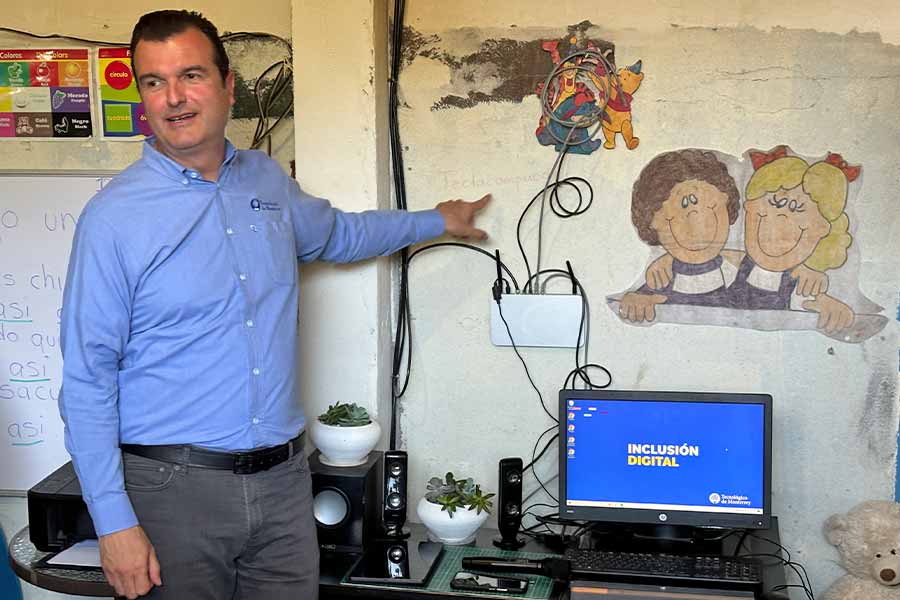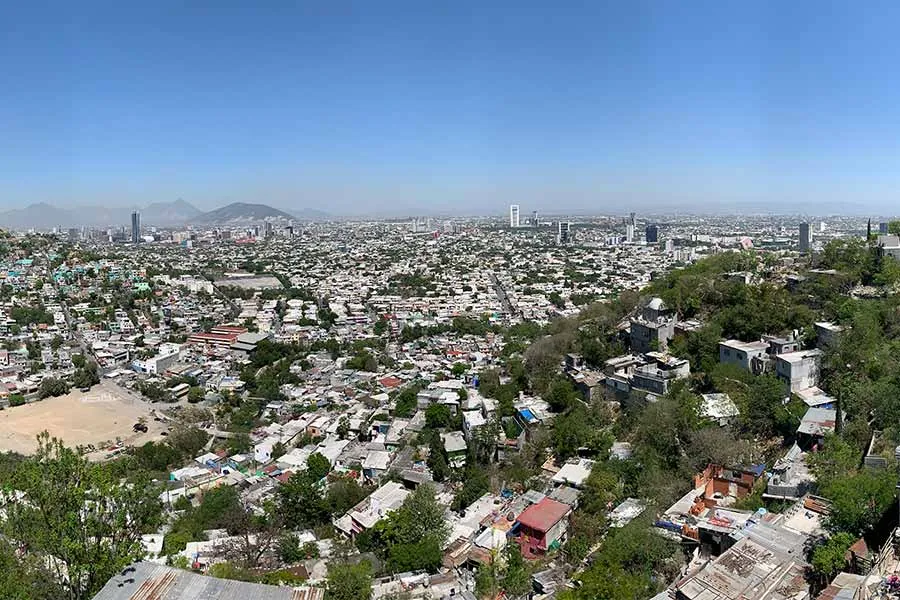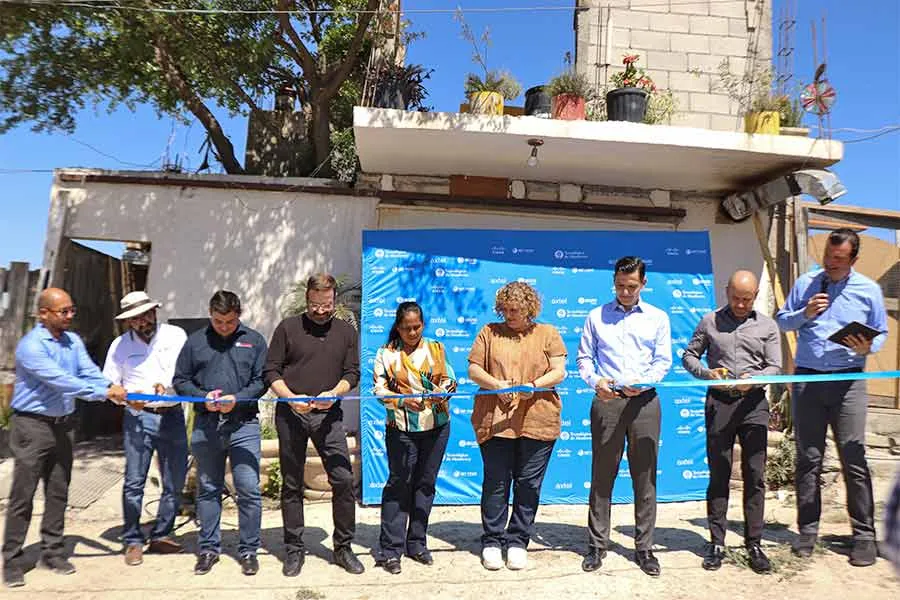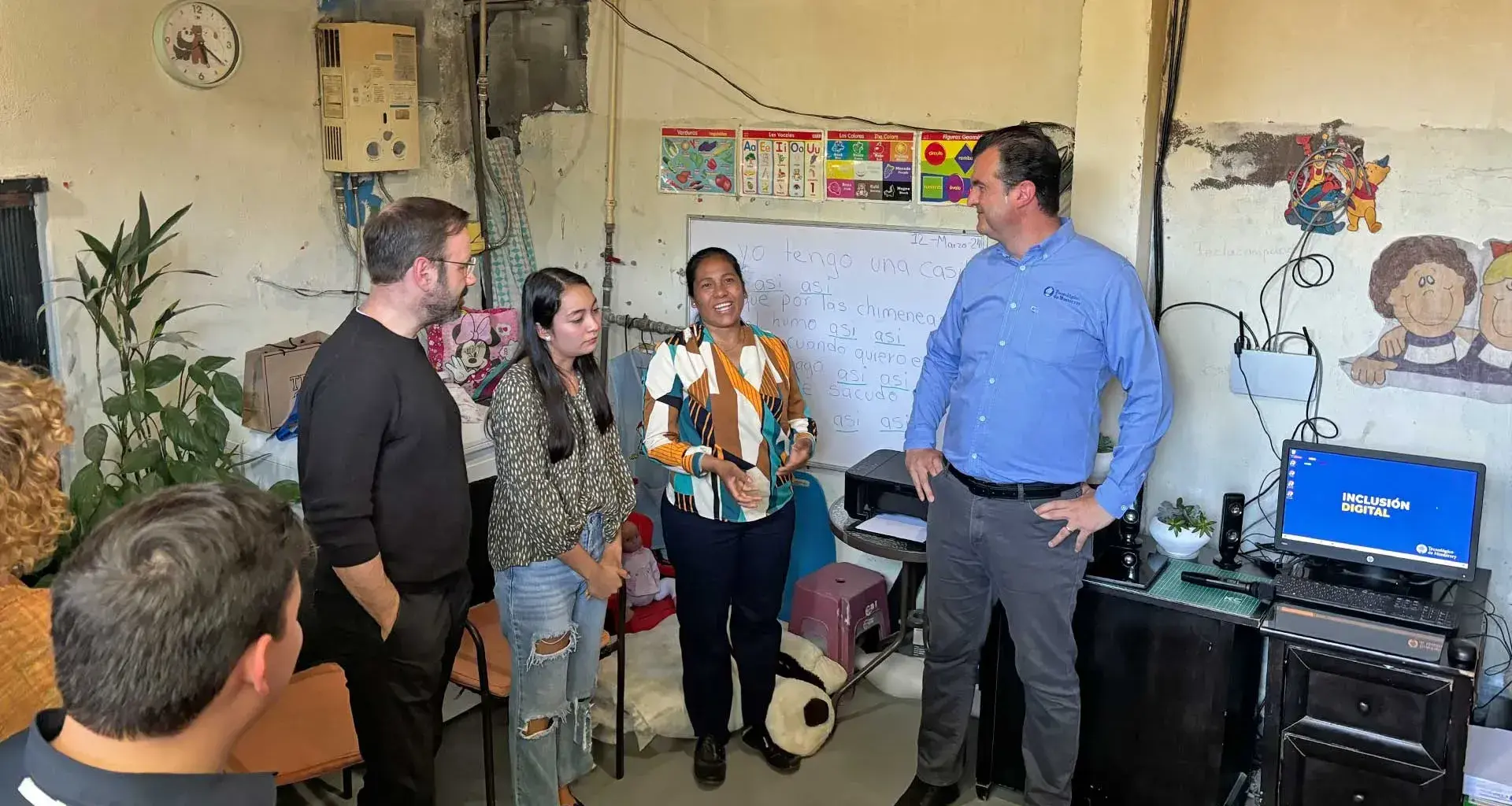Tec de Monterrey and Cisco, Alestra, Ikusi, and Net Point have launched the “Red Activa: digital community” project, which seeks to provide free Internet to communities near some of the institution’s campuses.
The project’s first network node was installed on Cerro de la Campana in Monterrey, in a neighbor’s home which was already operating as a teaching space for girls, boys, and young people.
“This project is an example of how environments can be transformed and positive impacts can be made to close the digital and social divide when you combine technology and people’s vocation to help their communities,” said Carles Abarca, Vice President of Digital Transformation at the Tec.
Within the institution, this effort is carried out via coordination between the Digital Inclusion initiative, the Vice-Presidency of Inclusion, Social Impact, and Sustainability, and the Vice-Presidency of Digital Transformation.

The goal: bringing the Internet to disadvantaged communities
According to INEGI, 32% of homes in Mexico do not have access to the Internet. In lagging sectors, this can become a digital exclusion factor generating social, economic, labor, and educational gaps.
Carlos Bejos, Director of Digital Inclusion, explained that this program seeks to contribute to digital literacy and the development of technological skills, by installing digital microlabs in vulnerable communities.
This project is looking for positive leaders in these communities who will receive computers with Internet access in their homes so that their neighbors and other inhabitants in nearby areas can make use of the equipment and the network, he explained.
The Internet signal is sent wirelessly, using telecom equipment provided by Tec technology partners, and broadband is shared by campuses near these communities.
“On our campuses, we map the surrounding communities that might benefit from this support,” said Bejos,
“This project is an example of how environments can be transformed when you combine technology and people’s vocation to help their communities.” - Carles Abarca
The scope of the initiative includes opening spaces in 11 communities next to Tec campuses.
- In a first phase, in 2024:
- Monterrey Campus
- State of Mexico Campus
- Santa Fe Campus
- During 2025 and 2026:
- Chiapas Campus
- Irapuato Campus
- Toluca Campus
- Querétaro Campus
- Zacatecas Campus
- Tampico Campus
- Hidalgo Campus
- Metepec
Abarca highlighted the synergy between positive community leaders, the Tec, and its technology partners on this program, as a combination of social activism and technology.
“We’re seeking to help those who are carrying out social work to have the means that enable them to distribute access to technology in a community that wouldn’t usually have any,” said Abarca.
By seeking to make an impact on this divide, we’re aiming to create environments for human flourishing that help develop better people and contribute to a better community.

First digital microlab in Monterrey
The project’s first digital microlab was installed on the highest part of Cerro de la Campana, in the home of Virginia Barrientos, who for years has supported boys and girls in the area with tutoring.
Miss Vicky, as she is known by local residents, already had a whiteboard and teaching materials in her home, to which computer equipment with Internet connection and a modem for sharing the signal via Wi-Fi have now been added.
An antenna was also installed on the roof of her home, which is part of the technology making up a connection bridge with the CEDES building, located over 2 kilometers away on the Monterrey campus.
“It was a very natural fit, because this is a family that were already opening the doors of their home for the benefit of their community,” Bejos added.
“I celebrate this set of efforts, as it’s a sign that together we can do more and thereby contribute to the transformation of our communities.” - Inés Sáenz
Inés Sáenz, Vice President of Inclusion, Social Impact, and Sustainability at the Tec, highlighted collaboration between the community, the institution, and its technology partners as a way to mend the fabric of society.
“The fact that there’s a computer in the home of somebody who is willing to dedicate their space and time, so that girls, boys, and adolescents can come and learn, makes it possible to change lives and futures, through technology and people’s generosity,” remarked Sáenz.
This space joins the efforts of the Campana-Altamira Initiative, a cross-sectional and community participation effort seeking to sustainably impact the quality of life of 20,000 inhabitants an area covering 15 neighborhoods.

Valued partners contribute to digital development in communities
In addition to community leaders and the Tec, commercial partners of the institution’s Vice-Presidency of Digital Transformation are also participating in this alliance, to bring free internet to digitally excluded areas.
Four companies are participating in the project: Cisco, Ikusi, Net Point, and Alestra, providing the network, digitalization, and telecommunications infrastructure to connect campuses with neighboring communities.
The ribbon-cutting ceremony on Cerro de la Campana was also attended by Aldo Petz, Director of Alestra’s Northern Strategic Accounts, who learned about the impact the project will have on the area.
“We’re very happy to participate together with Tec de Monterrey in this cause, bringing cutting-edge technology to disadvantaged communities and making a small contribution to digital development in the country,” said Petz.
These valued partners, who provide the Tec with Internet, installed antennas and repeated a 60-megabyte point-to-point connection to Cerro de la Campana to establish connection with that area.
Sáenz highlighted the collaboration of the community, the institution, and its technology partners, who agreed to participate in the development of this project to the benefit of the country’s digital development.
“I celebrate this set of efforts, as it’s a sign that together we can do more and thereby contribute to the transformation of our communities,” said Sáenz.

ALSO READ:





